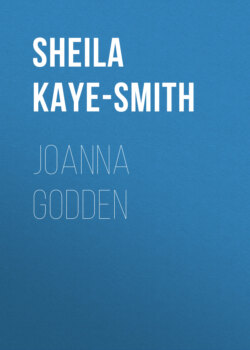Читать книгу Joanna Godden - Sheila Kaye-Smith - Страница 20
На сайте Литреса книга снята с продажи.
§15
ОглавлениеTable of Contents
When the first sharpness of death had passed from Ansdore, Joanna's sanguine nature, her hopeful bumptiousness, revived. Her pity for the dead lambs and her fellow-feeling of compassion for the ewes would prevent her ever dreaming of a new experiment, but already she was dreaming of a partial justification of the old one—her cross-bred lambs would grow so big both in size and price that they would, even in their diminished numbers pay for her daring and proclaim its success to those who jeered and doubted.
Certainly those lambs which had survived their birth now promised well. They were bigger than the purebred Kent lambs, and seemed hardy enough. Joanna watched them grow, and broke away from Marsh tradition to the extent of giving them cake—she was afraid they might turn bony.
As the summer advanced she pointed them out triumphantly to one or two farmers. They were fine animals, she said, and justified her experiment, though she would never repeat it on account of the cost; she did not expect to do more than cover her expenses.
"You'll be lucky if you do that," said Prickett rather brutally, "they look middling poor in wool."
Joanna was not discouraged, nor even offended, for she interpreted all Prickett's remarks in the light of Great Ansdore's jealousy of Little Ansdore.
Later on Martha Tilden told her that they were saying much the same at the Woolpack.
"I don't care what they say at the Woolpack," cried Joanna, "and what business have you to know what they say there? I don't like my gals hanging around pubs."
"I didn't hang aräound, ma'am. 'Twas Socknersh töald me."
"Socknersh had no business to tell you—it's no concern of yours."
Martha put her hand over her mouth to hide a grin, but Joanna could see it in her eyes and the dimples of her cheeks.
A sudden anger seized her.
"I won't have you gossiping with Socknersh, neither—you keep away from my men. I've often wondered why the place looks in proper need of scrubbing, and now I know. You can do your work or you can pack off. I won't have you fooling around with my men."
"I döan't fool aräound wud your men," cried Martha indignantly. She was going to add "I leave that to you," but she thought better of it, because for several reasons she wanted to keep her place.
Joanna flounced off, and went to find Socknersh at the shearing. In the shelter of some hurdles he and one or two travelling shearers were busy with the ewes' fleeces. She noticed that the animal Socknersh was working on lay quiet between his feet, while the other men held theirs with difficulty and many struggles. The July sunshine seemed to hold the scene as it held the Marsh in a steep of shining stillness. The silence was broken by many small sounds—the clip of the shears, the panting of the waiting sheep and of the dogs that guarded them, and every now and then the sudden scraping scuttle of the released victim as it sprang up from the shearer's feet and dashed off to where the shorn sheep huddled naked and ashamed together. Joanna watched for a moment without speaking; then suddenly she broke out:
"Socknersh, I hear it's said that the new lambs ull be poor in wool."
"They're saying it, missus, but it äun't true."
"I don't care if it's true or not. You shouldn't ought to tell my gal Martha such things before you tell me."
Socknersh's eyes opened wide, and the other men looked up from their work.
"Seemingly," continued Joanna, "everyone on this farm hears everything before I do, and it ain't right. Next time you hear a lot of tedious gossip, Dick Socknersh, you come and tell me, and don't waste it on the gals, making them idle."
She went away, her eyes bright with anger, and then suddenly her heart smote her. Suppose Socknersh took offence and gave notice. She had rebuked him publicly before the hired shearers—it was enough to make any man turn. But what should she do if he went?—He must not go. She would never get anyone like him. She almost turned and went back, but had enough sense to stop—a public apology would only make a worse scandal of a public rebuke. She must wait and see him alone … the next minute she knew further that she must not apologize, and the minute after she knew further still—almost further than she could bear—that in denying herself an apology she was denying herself a luxury, that she wanted to apologize, to kneel at Socknersh's clay-caked feet and beg his forgiveness, to humble herself before him by her penitence so that he could exalt her by his pardon. …
"Good sakes! Whatever's the matter with me?" thought Joanna.
